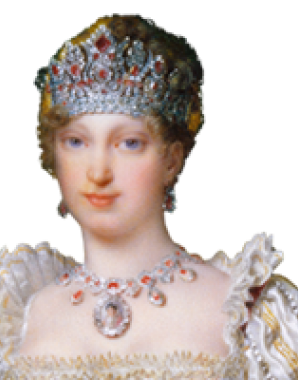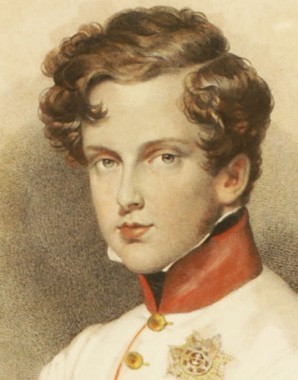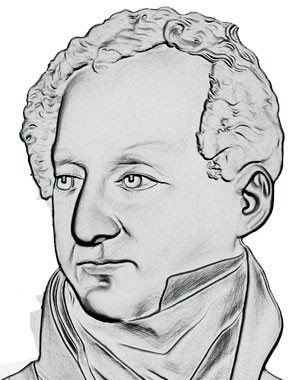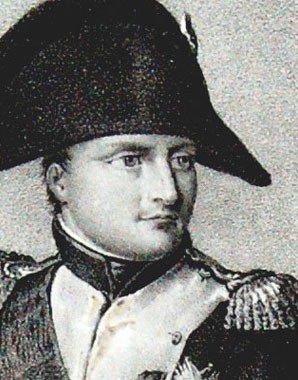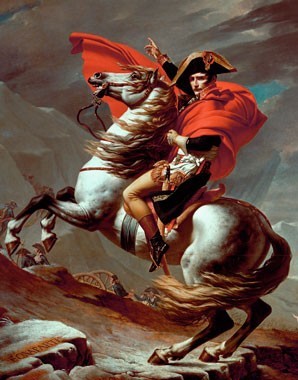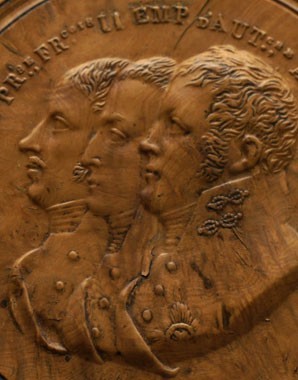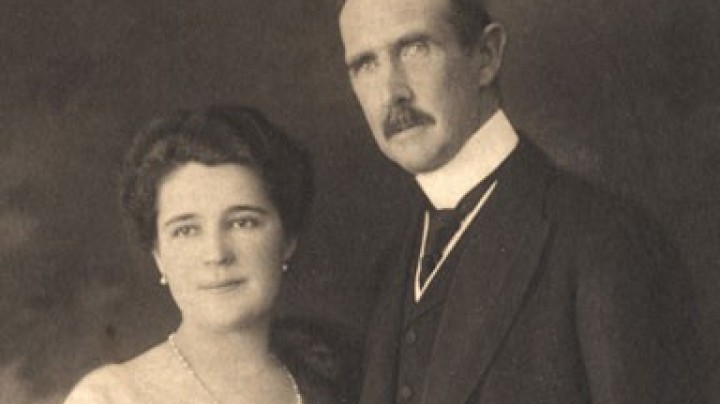Marriage with the devil
From the Habsburgs’ point of view the war against Napoleon was going far from swimmingly. A marriage would greatly improve the general outlook.
Napoleon Bonaparte on his marriage to the Habsburg archduchess Marie LouiseMy intention in marrying an archduchess was to fuse the new with the old, Gothic prejudices with the institutions of my own century.
I am marrying a belly.
Following a series of Austrian defeats in the wars against Napoleon, Prince Metternich performed an about-turn in Habsburg policy – enmity was to be superseded by cooperation. To this end, Metternich resorted to a time-hallowed Habsburg strategy and brought about the marriage of the eighteen-year-old Marie Louise, Emperor Franz’s eldest daughter, to Napoleon. The young archduchess was not at all pleased and called Metternich ‘the most loathsome popinjay that earth has ever known’, but her opinion was irrelevant. Both sides stood to gain greatly from the union, as Franz was seeking reconciliation with the French and Napoleon would be marrying into a good house and thus legitimizing his position of power as ‘Emperor of the French’. To the present-day mind the situation seems positively grotesque: Napoleon, who had constantly humiliated the Habsburg emperor on the field of war, was now to become his son-in-law. Queen Maria Karolina of Naples and Sicily was enraged by the sacrifice being made of her favourite granddaughter, which at the same time made her into ‘the devil’s grandmother’.
The last Habsburg marriage with a French ruler had led to Marie Antoinette meeting her end at the guillotine. Marie Louise was at least spared this violent death. The couple were married in Paris in April 1810, Napoleon having had himself divorced from his first wife Joséphine de Beauharnais on the grounds of her inability to bear him an heir. Marie Louise was more successful in this respect, in 1811 giving birth to a boy, Napoleon Franz Karl Joseph, who was promptly given the title of King of Rome.
However, as is well known, Napoleon’s good fortune in the theatre of war was not destined to last much longer. When he was deported to Elba, his son was demoted to ‘Duke of Reichstadt’. Marie Louise had no inclination to keep her husband company in his island exile and initially took up residence with her son at the court of Vienna. Franz and Karoline Auguste loved and pampered their grandson, who in his turn reserved his greatest love for Archduchess Sophie, the mother of the later Emperor Franz Joseph. Not only were there rumours at court that the two had a relationship but she was even said to have borne him a child.
At the Congress of Vienna, Marie Louise was given possession of the duchy of Parma for life. In the meantime she had made the acquaintance of Count Adam Adalbert Neipperg, whom she clearly found a more congenial companion than her husband. She moved to Italy with him in 1816 and the two married after Napoleon’s death.




